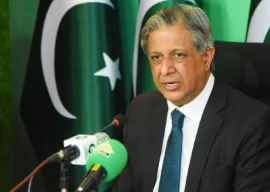
It is quite obvious a huge amount of work needs to be done. The problem appears to be that there is no money to do it. The UN has said an appeal for US $357 million made two weeks ago has been funded by only six percent. This is merely a drop in the ocean when seen against the swirl of waters that leave people helpless and hopeless. It is quite obvious that without a massive mobilization of funds not enough can be done to assist them. The UN agencies and other groups on the ground are doing what they can; food supplies are being provided by the World Food Programme and Unicef is offering clean drinking water and sanitation facilities. But these international agencies warn that they will soon run out of money and be unable to do anything at all. In other words, people will be left quite literally to fend for themselves even though they are in no position to do so. Some of those affected were also hit by floods last year and have yet to recover from the crippling blow delivered by that catastrophe. They simply cannot sustain more hardship. The struggle to keep children and the sick alive is already on. The Sindh government had announced an emergency situation in all the districts of the province. But there is no certainty what this has resulted in or whether the schemes announced by the Prime Minister after his visit to the affected areas have had any impact in real terms.
One question we need to ask ourselves is why there appears to have been less compassion and concern for the flood victims this year compared to 2010. It is true the international community is displeased with the lack of transparency in the use of donations doled out at that time and has already made it clear more funds will not be offered until a proper accountability mechanism is set up. But even within the country there seems to be too little concern and only a relatively limited effort to deal with what is a calamitous situation. Perhaps they have simply run out of the energy to cope with yet another disaster; perhaps they have no money to spare and maybe there has been too little publicity given all the other crises that we face on so many fronts.
But this of course is not the fault of the stricken people of Sindh. The latest UN statement has made clear just what their plight is. The question to be asked is what is to be done to assist them. Emergency measures are required. We cannot simply wait and watch — or rely entirely on the international agencies that seem to be doing what they can. A draining away of what limited funds they still retain would be a disaster. Even the hands now at work would be tied. So, do we have solutions? They are not easy to find. The amounts the government has been able to persuade China and Iran to offer have not been very generous. Other than this, assistance from other countries has not been exactly forthcoming (perhaps because of a credibility problem following last year’s floods). At the official level we need to find more friends and draw international attention to the urgency of the situation and the fact that the people of an entire province appear to have simply been forgotten and left literally marooned in their own misery.
At home, greater fund-raising efforts are needed. The people of Pakistan are known for their philanthropy but the media should be used to launch an extensive campaign asking for sustained help, and by providing audiences with figures such as those above mentioned by the UN. All of this, of course, suggests that we learnt nothing from last year’s devastation. It indicates also that the federal and provincial disaster management authorities need to be far more proactive and efficient than they have been thus far in the distribution of flood relief, and in the drawing of contingency plans for the future.
Published in The Express Tribune, October 3rd, 2011.
COMMENTS (3)
Comments are moderated and generally will be posted if they are on-topic and not abusive.
For more information, please see our Comments FAQ



































1713853507-0/MalalaHilary-(2)1713853507-0-270x192.webp)







Pakistan wants to deny all the allegations of running with the hare and hunting with the hounds, refuses to attack the Haqqani network which kills NATO soldiers, does not want to account for the spending of Flood Relief aid given last year, spends large amounts of money on its Nuclear Bomb program, yet it expects the world to come to the aid of its citizens ravaged by floods. Maybe Pakistani establishment needs to rethink its policies before asking for foreign help!
Speechless.. But this is one opportunity which can make us rise from the ashes if we learn how to be self-reliant.